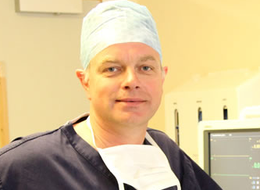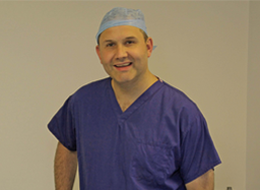About Us & What We Do
The Yorkshire Gallstone Clinic is a partnership of specialist gallbladder surgeons united by their area of expertise and interest. The organisation was founded and is led by two surgeons, Mr Andrew Smith and Professor Giles Toogood. They work in association with GPs, gastroenterologists, dieticians and other professionals to provide a holistic approach for all gallstone conditions.
The gallbladder is a small, pear-shaped pouch about 5 to 10 cm long. It is tucked just under the liver..
Read More
Gallstones are lumps of solid material that form in the gallbladder. They usually look like small stones...
Read More
Most people with gallstones have no symptoms. In some people (between one and four...
Read More
We have excellent patient satisfaction; including symptom relief, cosmetic appearance and importantly their experience in the peri-operative period.
Read More
Latest News
NIHR SUNFLOWER trial
Professor Toogood is the Chief Investigator for the national Sunflower study and Mr Smith is a Principle Investigator. This study is assesing the need for an MRCP before you undergo a laparoscopic cholecystectomy. There are 50 hospitals involved in the study that will potentially change the management of patients with gallstones. The will recruit over 13,000 patients in the next 2 to 3 years. Leeds is currently one of the leading recruiting sites in the UK. https://bristoltrialscentre.blogs.bristol.ac.uk/details-of-studies/sunflower/
UGI Congress, Belfast 2021
Both Professor Toogood and Mr Smith are leading the arrangements for a multi society international surgical congress. This is likely to attract surgeons from all over the UK and Europe ( if COVID permits). This is due to be held in Belfast in October 2021.
Tests
Ultrasound is a non invasive test. It is performed by placing a probe onto the abdominal wall. Sound waves generated by the probe are reflected by structures in the abdomen and picked up again by the probe which can then generate a picture. This is the same principle as sonar in a submarine. Gallstones cause most of the waves to reflect and are easily identified on an ultrasound. We can also look at the gallbladder wall to see if it has been inflammed - it appears thickened. Ultrasound can also assess the bile duct. We can measure the diameter of the duct (it may be dilated if a bile duct stone is present) and can identify duct stones themselves.
This is a scan that is helpful if we suspect that the gallbladder is not contracting properly (biliary dyskinesia) and is causing pain. It requires an injection of a non harmful radio-isotope that is taken up by the liver and gallbladder. A drug is given to make the gallbladder contract and the amount of isotope that is ejected from the gallbladder can be measured. The diagnosis of dyskinesia is made if only a small proportion of the radio-isotope (<30%) is secreted from the gallbladder.
ERCP is an endoscopic procedure that is rarely used these days to make a diagnosis, but more frequently as a therapeutic tool to deal with gallstones that are stuck in the common bile duct.
The procedure is performed under sedation, rarely under a general anaesthetic. An endoscope (a thin flexible camera) is passed via the mouth, through the stomach and into the duodenum (first part of the bowel) where the exit of the common bile duct is located. X-Rays (cholangiogram) of the duct can be performed and gallstones can be removed. If this is not possible on the first occasion then a stent (a fine plastic tube akin to a straw) can be placed to relieve the jaundice. A further procedure can then be performed at a later date to remove the stent and residual stones.
The vast majority of ERCPs can be performed without complication. Occasionally an ERCP can cause bleeding, pancreatitis or rarely bowel perforation.
Liver function tests (LFTs) are a blood test commonly performed when gallstones are suspected. A rise in the LFTs may suggest that a stone has passed into the bile duct or that the pain may be due to other causes apart from gallstones.
MRCP is a form of Magnetic resonance imaging - again it is non invasive and does not use radiation. It is a very good technique to identify whether there are stones within the bile duct.
The Sphincter of Oddi is a muscle valve which allows bile to pass from the bile duct to the duodenum. If Sphincter of Oddi dysfunction is suspected then the diagnosis can be confirmed by manometry. This is an endoscopic procedure where a catheter is placed into the sphincter via an endoscope. The pressure within the muscle is then recorded. An elevated pressure within the muscle can confirm the diagnosis. The procedure carries a small risk of causing an acute pancreatitis.
Our Doctors
The organisation was founded and is led by two surgeons, Mr Andrew Smith and Professor Giles Toogood.
View All
Giles Toogood
Professor Giles Toogood has been a Consultant in Leeds for 19 years and specialises in gallbladder and liver surgery.

Andrew Smith
Mr Andrew Smith has been a Consultant in Leeds for 11 years and specialises in gallbladder and pancreatic surgery.
Patient Feedback
We really value all our patient feedback and publish it here on our website for all our other patient to see.
Click here to read more
David G, Hull
"I would just like to take this opportunity to say a big thank-you to you and your team for your medical expertise, honesty and friendly approach. My family and I will be forever grateful."
November 2011
Geoff M, Moortown
"Great team approach - wonderful service"
January 2013
Clare H, Harrogate
"I had been suffering from abdominal pains for a couple of years without getting anywhere. Finally I got referred and saw Mr Toogood who quickly diagnosed that my problem was gallstones. He arranged an urgent operation that was performed by Mr Smith all within a few days and now I feel like a new woman! Excellent care and service."
March 2012


